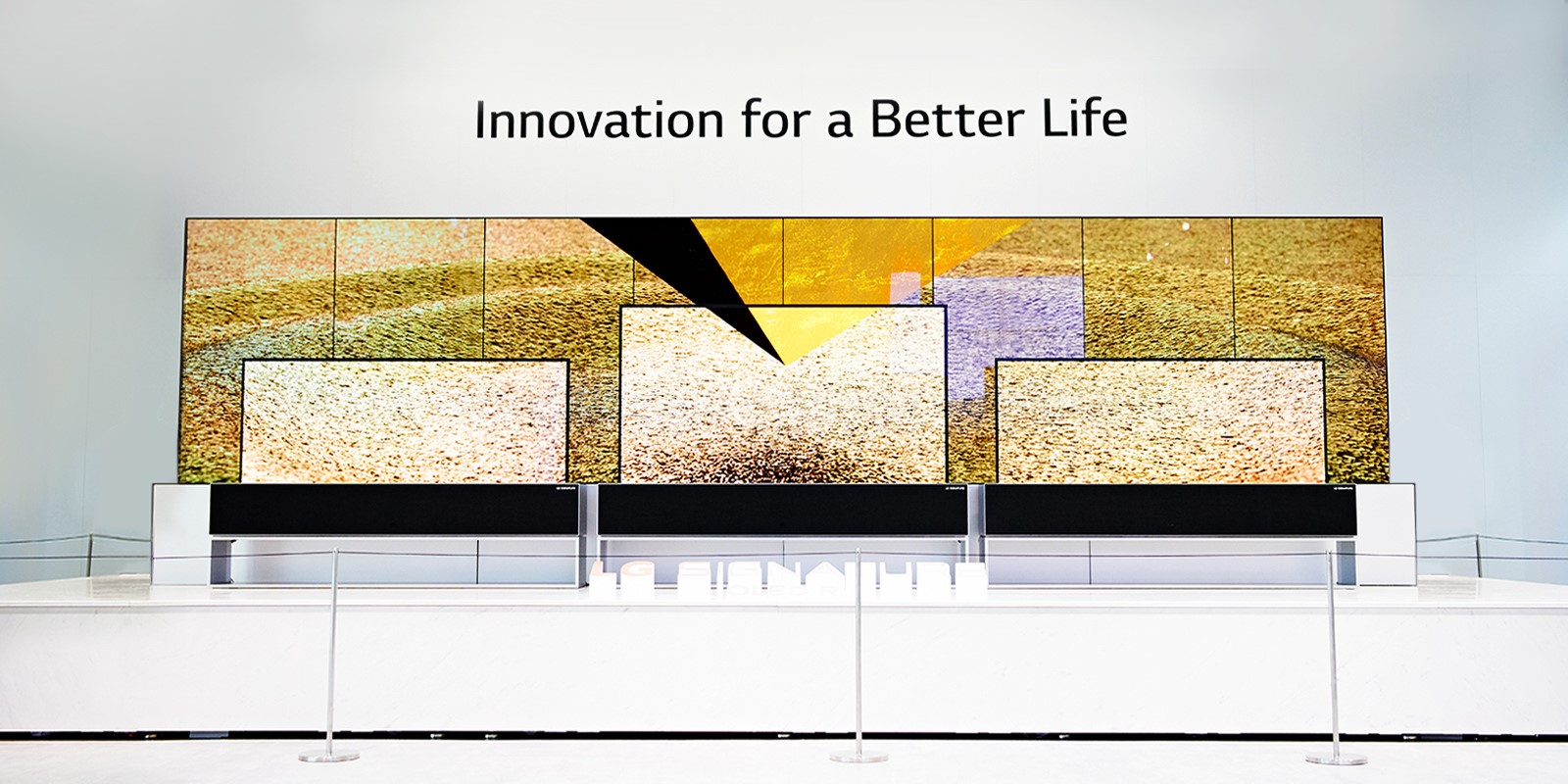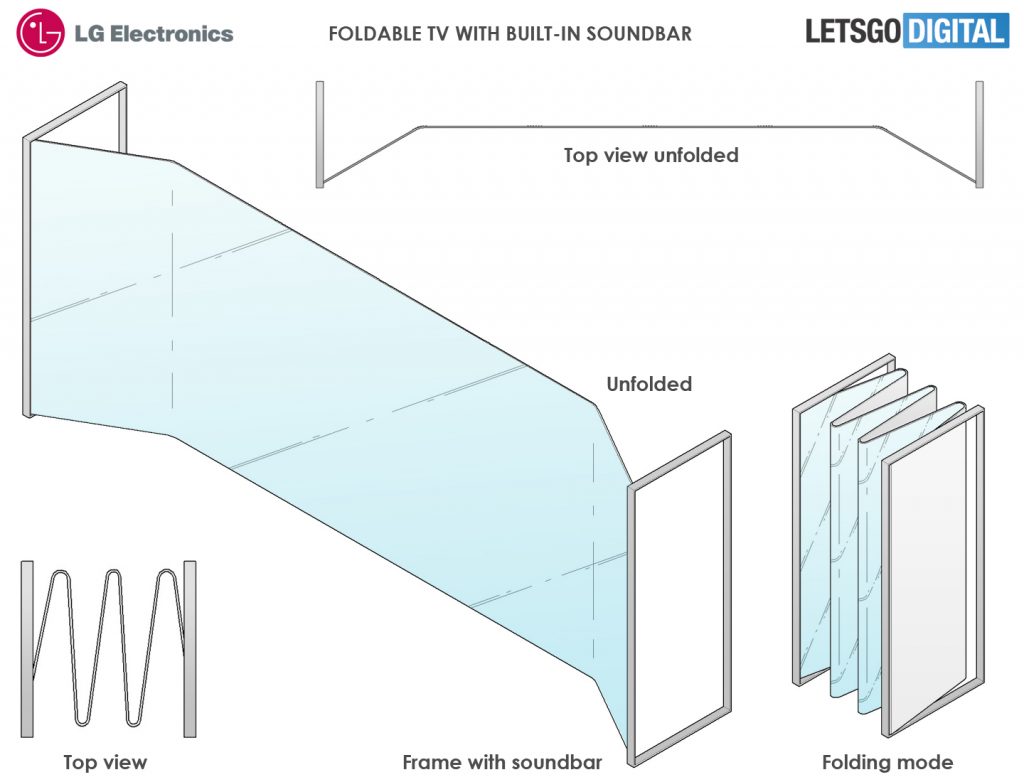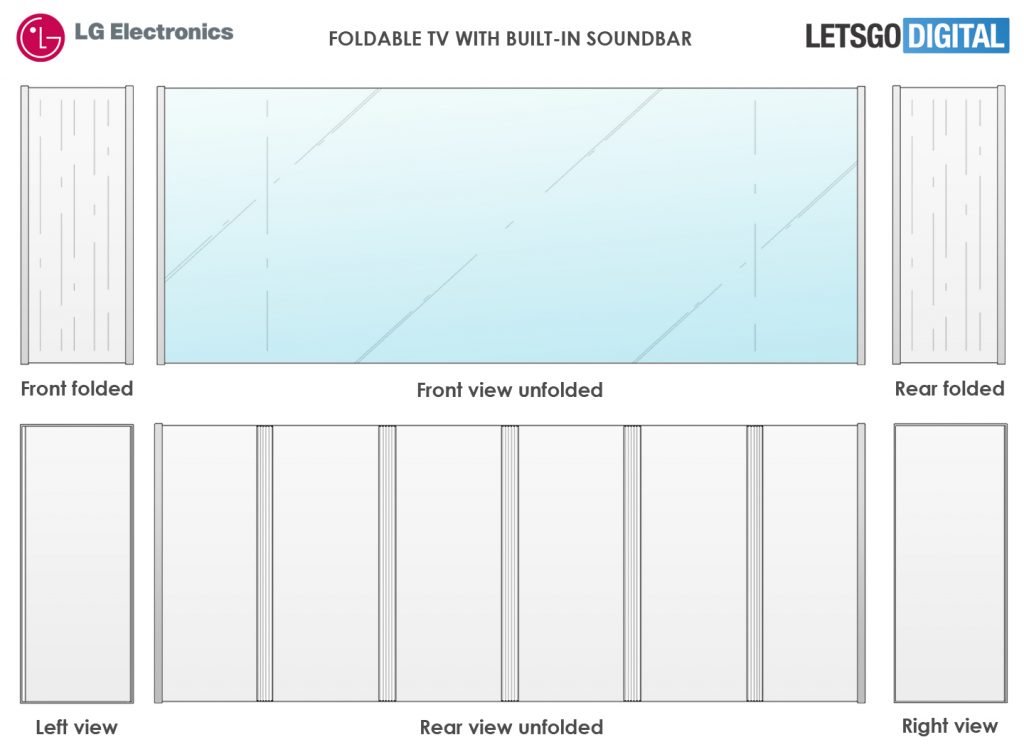LG Folding TV Design Leaks, and It Looks Awesome
LG's newest trick might be a TV that folds up

We may still be waiting for LG's incredible Signature OLED R rollable TV, but LG's not done pushing the envelope of what a TV can be. A recent patent filing from the Korean manufacturer suggests that a foldable OLED TV might be in the TV-maker's future.
Taking the foldable screen technology used in foldable phones – like the Samsung Galaxy Fold and Huawei Mate X – the device shown in LG's patent filing shows an ultrawide display (likely with a 21:9 aspect ratio, or larger) that folds up when not in use, packing the TV into a compact space instead of hanging on the wall.
LetsGoDigital initially spotted the patent and also published related artwork and renders.

The patent was filed this last September with the The Hague International Design System, describing a TV receiver with a flexible display, and includes product design sketches that give us a very clear picture of what such a product may look like.
The patent illustrations show a six-segment folding display that uses a zigzagging map fold to compress accordion-like when not open for use. At either end of the display is a rigid frame that includes built in speakers, providing the sound for the TV, and presumably housing some of the TV components.

Per the patent filing: "This design is for a television receiver with flexible display which can be folded at regular intervals. The square frames on both sides serve as stands, as well as sound bars."
There are no specifications or details for the as-yet unreleased folding model, but both the LG OLED R rollable TV and the recently reviewed LG 8K Z9 OLED feature designs that shift some or all of the components to the base or stand. In this foldable configuration, it would make sense to use a similar approach, placing those components in the end frames, where the speakers appear to be housed.
Sign up to get the BEST of Tom's Guide direct to your inbox.
Get instant access to breaking news, the hottest reviews, great deals and helpful tips.

Perhaps the most interesting detail from this filing – aside from the folding TV – is that the paperwork was done by LG Electronics rather than LG Display. While LG Display often develops new product concepts, these R&D efforts by the display panel manufacturer don't always translate into products on the consumer market, since LG Electronics is a separate entity under the LG corporate umbrella. Seeing the LG Electronics name on these filings strongly suggests that the company is readying a new folding product for the consumer market.
Whether it will ever be a product for purchase is another question. Consumer interest in foldable screen devices has been high, but the reality so far has left a lot to be desired. The initial launch of the Samsung Galaxy Fold was plagued with problems, and even after months of fixes, the recently relaunched version received mixed reviews, including questions about the folding display's durability. Even Samsung warns against using anything but a light touch when opening and closing the screen.
While a folding TV may not be opened and shut as frequently as a foldable phone, the same concerns would carry over to any folding display.
And even LG's genuinely exciting rollable Signature OLED R hasn't quite made it to market, despite initial promises of a 2019 product launch. In fact, the most recent word was that it might be available in Korea this year, and sold globally in 2020.
As for the foldable TV, we'll keep our fingers crossed. Maybe LG will surprise us by showing off a prototype at CES in January.
Brian Westover is currently Lead Analyst, PCs and Hardware at PCMag. Until recently, however, he was Senior Editor at Tom's Guide, where he led the site's TV coverage for several years, reviewing scores of sets and writing about everything from 8K to HDR to HDMI 2.1. He also put his computing knowledge to good use by reviewing many PCs and Mac devices, and also led our router and home networking coverage. Prior to joining Tom's Guide, he wrote for TopTenReviews and PCMag.

